- Home
- Mike Lupica
Million-Dollar Throw Page 3
Million-Dollar Throw Read online
Page 3
About how Abby’s world was on its way to being as dark as a movie theater.
That was the summer when Abby realized it was more than her having a problem going from dark to light, more than bumping into things at night, more than having trouble sitting at her window and staring at the stars, one of her favorite things her whole life.
He knew now that the loss of night vision and peripheral vision were just two of her symptoms, knew that the cones closest to the center of her eyes were already making her sense of color go haywire. Abby herself had told him that, explaining why her paintings looked the way they did, explaining that if they both looked at the same rainbow and then she painted it, the colors would look completely different than they had to Nate, as though she were living on the other side of the rainbow.
“It’s why it’s going to be all right, Brady, you wait and see,” she’d said. “Sometimes I feel like I’m painting better than I ever have.”
In those moments Nate would want to scream at her, even though he never would, that she wasn’t going to be able to paint anything once the keyhole shut completely.
That’s the way he saw things inside his head when he imagined the way the world was starting to look to Abby McCall.
He saw them through an old-fashioned keyhole.
Nate had looked up retinitis pigmentosa on the Internet after Abby had finally told him the truth about what was wrong with her eyes. He’d found a “Fighting Blindness” website. And right there on the first page were two pictures. On the left were two little boys, both holding soccer balls, smiling into the camera.
Underneath that one it read, “Normal vision.”
On the right was the other picture, most of the frame black, and all you could see was half of each boy’s face, nothing else. That and the black.
Underneath that one it read, “As seen by a person with retinitis pigmentosa.”
As seen by Abby.
Abby through the keyhole.
No known cure, the website said, but Nate knew that part already. Knew—even worse—that usually people lived well into their grown-up years before retinitis pigmentosa made them go completely blind. Knew that was the normal progression with the disease. And knew that the form of retinitis pigmentosa that Abby had—Leber’s congenital amaurosis—normally attacked kids at birth. Or at least in early childhood.
Only the great Abby McCall couldn’t be normal, even when it came to going blind.
So all the doctors and specialists she’d seen had said the same thing, about the onset of Leber’s with a thirteen-year-old, how “remarkable” that was. And how “remarkably rapid” the progression of Leber’s was with Abby McCall.
Nate just thought it figured, the remarkable part. Just because Abby, now more than ever, was the most remarkable person he’d ever known.
Starting with the fact that even now, even with Nate seeing how much harder things were getting for her, especially in school, Abby acted as if the only thing in the world that mattered was Nate making his throw.
“The key with you,” she was saying now, “is getting your brain to work as well as that arm of yours.”
“No chance,” he said.
This was a couple of days after they’d watched him on SportsCenter, Nate and Abby having walked over to Coppo Park after a teachers’ conference half day of school. Coppo Park was one of their favorite places in town, and now they were there. A bench was positioned perfectly in the morning sun, so that even in the middle of winter you could sit without a coat on and remember what summer felt like.
The sun was so bright this morning, in fact, that Abby was doing something she never did when anybody except Nate was around: wearing the huge wraparound sunglasses with the orange tint, ones that reduced the light hitting her eyes and made her feel more comfortable.
Because now the days were becoming as hard for her as the nights. There was hardly any good light for her anymore.
“You’re only fired up because you’re the one who got me into this,” Nate said. “Set me up to choke my brains out in front of the whole stinking country.”
“Well, I’ll tell you one thing, Mister,” she said. “I don’t care how bright the stinking stadium lights are that night, I’m not going to be Goggle Girl.”
She put her hands on the sides of the sunglasses, like she was a golfer studying a putt.
“I don’t know why you hate wearing those glasses so much,” he said. “I think you look cool in them.”
She shook her head. “I may be blind, Brady,” she said. “But I’m not stupid.”
Nate hated when Abby said “blind.” He thought about it all the time. He just didn’t like the word getting out into the air.
“You go ahead and line up all the ways I could describe you,” he said. “Stupid would be dead last.”
“They make me look like a nerd,” she said. “The star of the new series Ugly Abby.”
“Like that could ever happen.”
“You know that’s not what I really hate about them,” she said.
Just like that, her voice had changed, the way it could when she decided to get serious. “The thing I hate the most is how much they draw attention to me.”
“I know.”
“I know you know,” she said. “It’s why you’re you and everybody else is everybody else.”
One of her favorite expressions.
“Right back at you,” Nate said.
Abby grabbed Nate’s football off his lap then, got up off the bench and caught her hip on the end of the long picnic table in front of them, which Nate knew had to sting. She was bumping into things more often lately. But she acted as if it hadn’t happened.
“C’mon,” she said.
“Where are we going?”
“To work on your passing,” she said.
“Not one of your more brilliant ideas,” he said.
“Excuse me?” she said. “I thought you said all of my ideas were absolutely brilliant.”
She was across the deck now, and whipped a perfect pass at him.
“What’s the matter, Brady?” she said. “Afraid people won’t be able to tell which one of us throws more like a girl?”
CHAPTER 5
There was no one else on the field. On the other side, way over near the swimming pool, Nate could see people walking their dogs in Coppo’s new dog park.
“One condition before we start,” Nate said.
“I’m not negotiating, Brady.”
“Just one,” he said. “You’ve got to keep the sunglasses on.”
Abby said, “They’re not going to help me catch the ball.”
“If they go,” he said, “I go.”
“You are not the boss of me.”
“True that,” Nate said, smiling. “But I am the quarterback, which means I’m the one who gets to call the plays. It’s a rule they passed.”
“Fine,” she said. “But this will cost you down the road.”
Nate said, “It always does.”
They hadn’t played catch together in a long time, and Nate wasn’t sure why she was so fixed on doing it today. Maybe it was just because the weather was so beautiful, not summer and not fall, but something right in between. Maybe having a day off from school always felt like you were putting one over on the world. Or maybe, just maybe, this was one of those days when Abby, without coming right out and saying so, just wanted to pretend things were the way they used to be.
The way they were supposed to be.
All Nate knew for sure was this: He was as nervous as if it were third-and-long. Or maybe even fourth-and-goal.
No, that was wrong. Because when he was in situations like that in a game, on a real football field in a real game, when the ball and the game were in his hands, Nate never really felt nervous, even though he knew the other guys in the huddle were.
Nate would get excited.
Totally.
But never nervous.
Today he was. He could see how happy Abby was just to be out
here with him and he didn’t want something—didn’t want anything—to go wrong.
She moved about twenty yards away from him, clapped her hands, yelled, “Okay, bring it.”
“Get closer, Abs.”
“No.”
“Just a little closer. Please?”
She grinned, took one baby step toward him, and said, “Happy?”
He wanted to tell her that of course he was happy. He was always happy to be with her, on a park field or anywhere else.
But the glasses stopped him.
Nate couldn’t help it. She was right about them, they did draw attention to her, like some sign she was wearing. Even on what should have been a perfect day like this, those glasses shouted that nothing was going to be normal for her from now on.
“I’m waiting,” she said.
Nate took a big step toward her, tossed the ball.
Underhanded.
She caught it with no problem, already shaking her head, saying, “This isn’t tosses for tots.”
She whipped a perfect spiral right back at him. Not throwing like a girl at all.
Just throwing.
“Put some mustard on the next one, Alice,” she said to him, clapping her hands again.
“This is not a contest,” he said, but lobbed the next one back to her overhand.
“Better,” she said. “But we’re not there yet.”
Abby McCall was graceful in everything she did before she started to lose her sight, before she couldn’t help herself from stumbling or bumping into things or ending up on the ground sometimes. She was her old graceful self now, moving to her right on her long legs, stopping, throwing another beautiful pass back to Nate.
“Oh yeah,” she said, doing her own version of a touchdown dance. “Oh yeah. We are playing some ball now.”
He threw his next pass a little harder, trying to make it perfect, telling her to focus, watch the ball out of his hands. Making sure it wasn’t too low, but wasn’t anywhere near her face, either.
Thinking: This is what it’s going to feel like on Thanksgiving night.
They threw like this, no problems, for a while, until Nate finally said, “Couple more. I don’t want to throw my arm out before the Blair game.”
“Right,” Abby said. “Wouldn’t want that to happen. Because you’re putting soooooo much pressure on your throwing arm.” She put her hands on her hips. “Who are we kidding here, Brady? You could throw harder with your left hand.”
“It’s not like I don’t have to lay it in there all soft for Pete sometimes,” he said.
“You know what I love about you?” she said, not embarrassed, not ever embarrassed, to use that word in front of him. “You are as bad at lying as you are good at football.”
She laughed then. And even with those glasses on, Nate thought she looked tremendous.
“Okay,” she said then. “One more and we’re done.”
She took off, faking out an imaginary defender, like she was the one running Hutchins-and-Go now, not running at full speed, but running free, long legs eating up the field.
Nate didn’t throw this one any harder than the ones before it and was sure he had led her perfectly, as if he were hitting LaDell with a short swing pass coming out of the backfield.
He wasn’t sure why she tripped.
Wasn’t sure whether there was some little hole in the ground, or one of those uneven places where there was a patch of green that seemed a foot or two higher than anything around it. It’s possible that even if she still had two good eyes, she wouldn’t have seen whatever tripped her up.
But something did.
Nate saw the whole thing playing out like it was in slow motion, saw her start to stumble, knew she wasn’t going to be able to stop herself, saw her pitch forward as she completely lost her balance. And now Nate’s throw wasn’t leading her the way he’d wanted it to, it was catching her on the side of her head, sending those big sunglasses flying.
Nate ran toward her as soon as she hit the ground, getting to her before the ball had even stopped rolling away.
“Abs, I’m so sorry,” he said. “Are you okay?”
“I’m okay,” she said in a quiet voice, not sounding scared or hurt or upset. Just quiet.
She looked right at him then, hard as she could, as though she could see everything, everything that had just happened to her, everything that was going to happen.
Then she smiled at him again, bigger than before.
“Thanks, Brady,” she said.
“Thanks?” he said. “For what?”
She reached up to him with her hand, and Nate helped her up.
“For putting me in the game one more time,” she said.
CHAPTER 6
There were times when Nate could actually trick himself into thinking things were the same as they’d always been with his dad. At least, when his dad was around.
They would sit at the kitchen table and talk about last Sunday’s Patriots game, unless it was time to start looking ahead to next Sunday’s game. They’d talk about Tom Brady’s statistics, his touchdowns and interceptions, not that there were ever many interceptions to talk about. They would even discuss Brady’s “passer rating,” Nate having figured out how to compute a guy’s quarterback rating on his own.
Abby said it was the first math homework assignment Nate had ever wanted to complete. And she was right.
He had worked on the football math until he got it perfect—the strange formula that used completion percentage, yards per attempt, touchdowns per attempt, and interceptions per attempt. The formula that had a highest possible rating of 158.3.
“Great, Brady,” Abby had said the one and only time he tried to explain it to her. “One hundred percent is a perfect score for everybody else, yet you have to go to one fifty-eight just to show off.”
“You forgot point three,” he’d said.
“Shut up,” she’d said.
His dad got it, though. His dad had always had a good head for numbers, even though he joked these days that the numbers weren’t adding up for their family quite the way they used to, that it was a good thing nobody was rating him on how he was selling real estate.
Those conversations, the ones about family finances and the state of the real estate business, never lasted very long.
On the rare nights when his dad was home for dinner, they’d head over to Coppo Park as soon as they finished clearing the table and throw a ball around. Chris Brodie had been a quarterback in high school and still had a decent arm, and when he’d get warmed up, when he’d start to feel loose, Nate would know what it felt like to be Pete or one of his other receivers on the Valley team. What it was like to be on the receiving end, the pain end, of what Pete liked to call one of Nate’s darts.
On nights like these, Nate’s dad would laugh and act as if he didn’t have a care in the world.
Only the next night he wouldn’t be there for dinner, would be off to his second job as the night manager at Big Bill’s Sports in DeWitt, the next town over, in the Pheasant Hill outlet mall just off the highway—a mall that made the one in Valley look small enough to fit in its pocket. The stores there stayed open until ten o’clock. Most nights, Nate’s dad wouldn’t be home until eleven, by which time Nate would be asleep.
And when Nate would get up for breakfast the next morning, there would be no conversation about sports or anything else at the kitchen table because his dad would already be at the tiny office he kept for Brodie Real Estate over McBride’s, the convenience store in Valley where everybody went to buy newspapers and candy. Nate had gone there one time—one time only—and immediately realized that Brodie Real Estate was only his dad, and that his “office” was a desk and a telephone and a small window looking out on Elm Street.
When he’d asked his mom about it later, she’d said, “Your dad still needs a place to go in the morning.”
“What does he do there all day by himself?” Nate had asked.
“Sometimes he just wai
ts for the phone to ring,” she’d said.
His dad put it another way: said he was just waiting for the game to change, the way he had been waiting for it to change since he’d lost his job at his old real estate company.
“We’re like the Patriots,” he’d said to Nate. “They were down when Belichick started coaching them, but look where they are now. They’re the team to beat pretty much every year now. It’ll be our turn again soon.”
Nate wondered when “soon” would arrive. He hoped it was before somebody finally bit on the “For Sale” sign that had been in front of their house since the end of last school year.
There was something about that sign that was like Abby’s sunglasses, a reminder that hardly anything in Nate’s life—outside of football—was the way he wanted it to be, or the way he’d always thought it would be before his dad lost his job and Abby started to lose her eyesight.
The day the “For Sale” sign first went up, his parents had told him there was nothing for him to worry about. They were always telling him there was nothing to worry about, that they wouldn’t be leaving Valley, that he wasn’t going to have to change schools, that Valley was too small for him to have to worry about being far from Abby or any of his other friends. They were just looking for a smaller house, one that fit what his mom liked to call their “new circumstances.”
Nate had tried to get used to those circumstances, had tried to get used to always keeping his room clean just in case somebody who might want to buy their house was coming by to look at it.
That was back when people were still coming by to look at it.
Some nights he would sit at his bedroom window, not looking at the stars the way Abby loved to, but looking out at that “For Sale” sign as though it were his address now—not 127 Spencer Street, just For Sale, Massachusetts.
He was doing that tonight, a few hours after he’d knocked off Abby’s glasses, unable to sleep. He thought about getting on his computer and seeing if Abby was still awake, instant-messaging her the way he did at night when he couldn’t sleep or couldn’t figure things out, when his mind seemed to be going in ten different directions at once. She’d figure things out for him or give him a pep talk in those huge letters they used now when they were IM’ing each other, or just make him feel better by using one of her favorite phrases:Get over it, Brady.

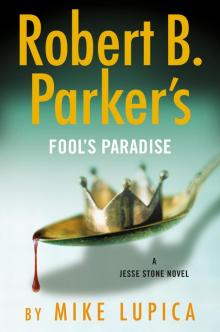 Fool's Paradise
Fool's Paradise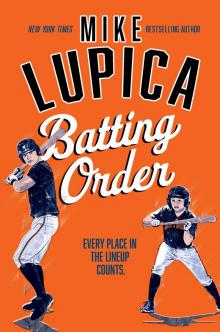 Batting Order
Batting Order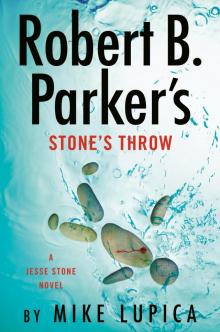 Stone's Throw
Stone's Throw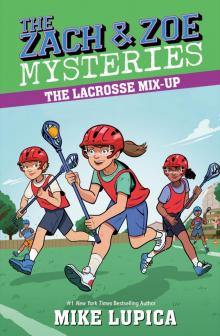 The Lacrosse Mix-Up
The Lacrosse Mix-Up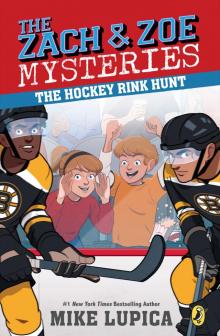 The Hockey Rink Hunt
The Hockey Rink Hunt Payback
Payback Triple Threat
Triple Threat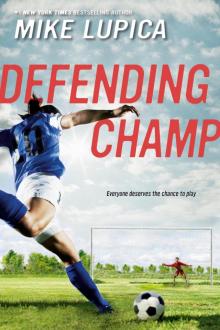 Defending Champ
Defending Champ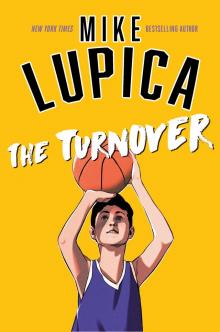 The Turnover
The Turnover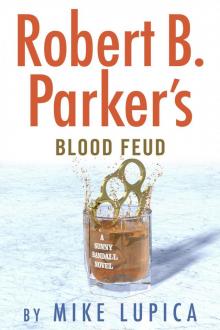 Robert B. Parker's Blood Feud
Robert B. Parker's Blood Feud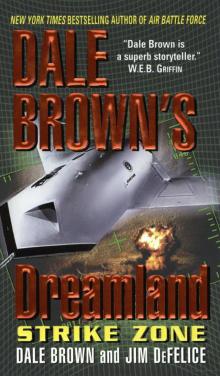 Strike Zone
Strike Zone Hero
Hero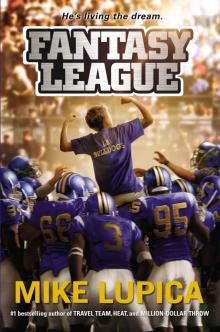 Fantasy League
Fantasy League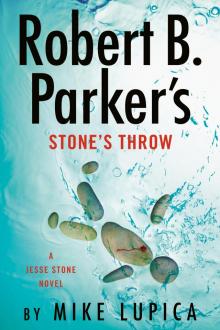 Robert B. Parker's Stone's Throw
Robert B. Parker's Stone's Throw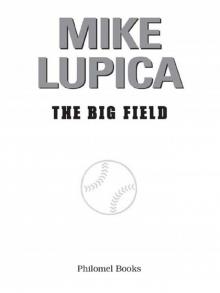 The Big Field
The Big Field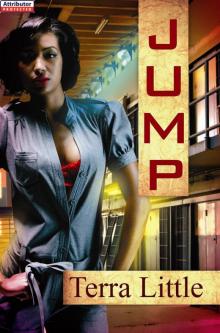 Jump
Jump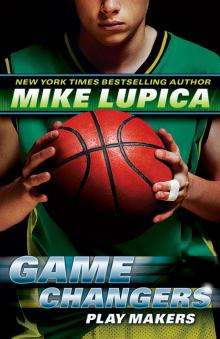 Play Makers
Play Makers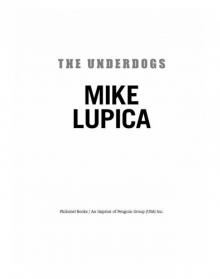 The Underdogs
The Underdogs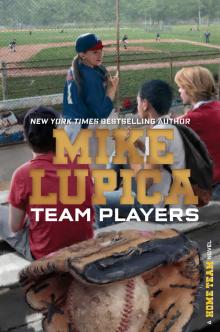 Team Players
Team Players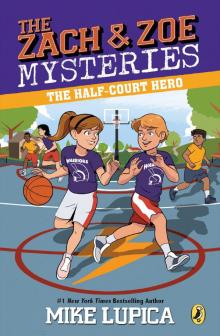 The Half-Court Hero
The Half-Court Hero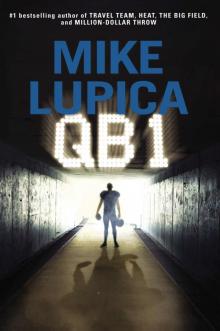 QB 1
QB 1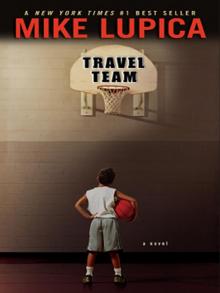 Travel Team
Travel Team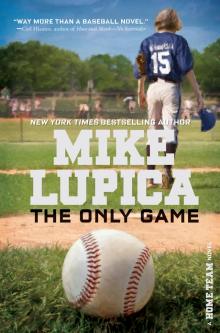 The Only Game
The Only Game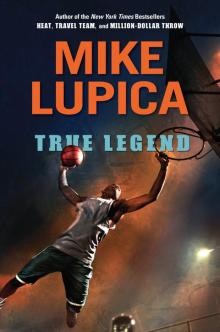 True Legend
True Legend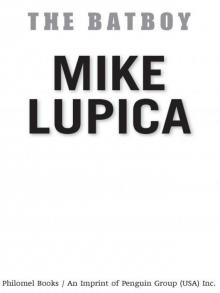 The Batboy
The Batboy Hot Hand
Hot Hand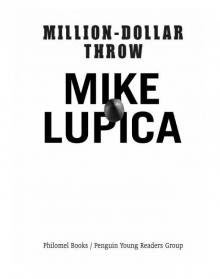 Million-Dollar Throw
Million-Dollar Throw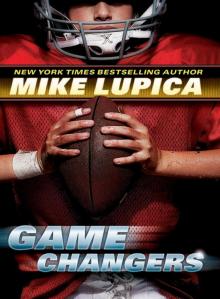 Game Changers
Game Changers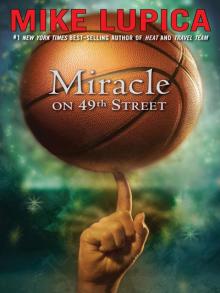 Miracle on 49th Street
Miracle on 49th Street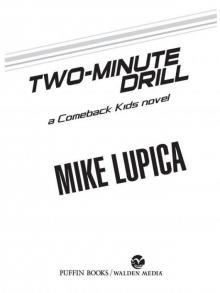 Two-Minute Drill
Two-Minute Drill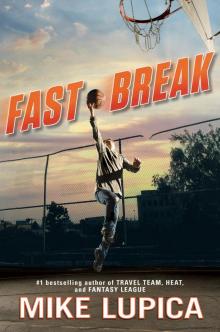 Fast Break
Fast Break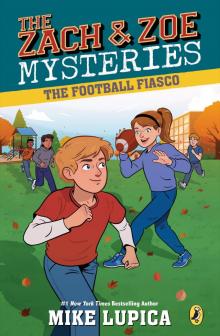 The Football Fiasco
The Football Fiasco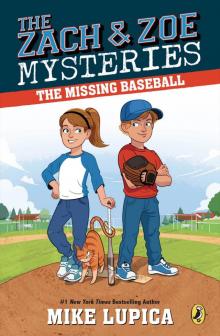 The Missing Baseball
The Missing Baseball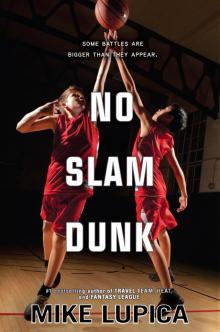 No Slam Dunk
No Slam Dunk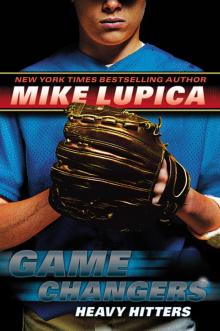 Heavy Hitters
Heavy Hitters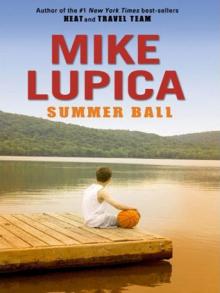 Summer Ball
Summer Ball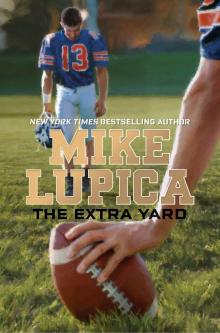 The Extra Yard
The Extra Yard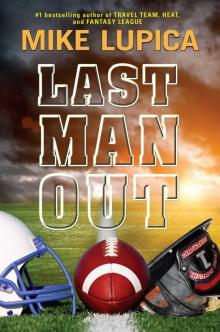 Last Man Out
Last Man Out